Top 15 Egg Myths, Cracked
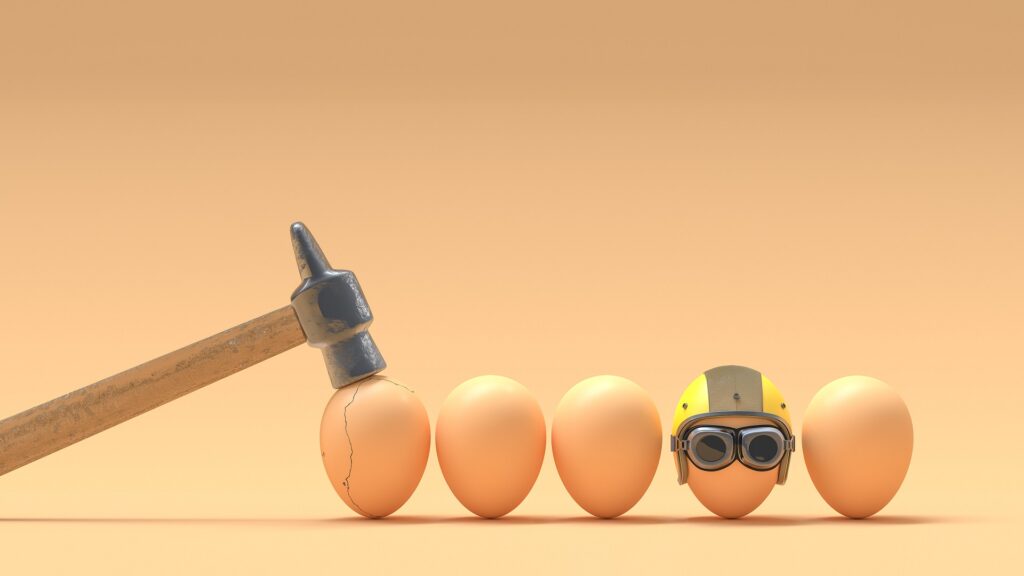 While eggs are known as being an incredibly nutritional and beneficial part of any diet, there still seem to be quite a few questions and myths surrounding the incredible edible egg. Now, more than ever, with all kinds of varieties of eggs available in the market, the confusion to consumers is growing. Which kind of eggs are the best? How long do eggs really stay good for? What came first, the chicken or the egg? Thanks to MSN, we’ve found these answers and more in the Top 15 Egg Myths, Busted for you below!
While eggs are known as being an incredibly nutritional and beneficial part of any diet, there still seem to be quite a few questions and myths surrounding the incredible edible egg. Now, more than ever, with all kinds of varieties of eggs available in the market, the confusion to consumers is growing. Which kind of eggs are the best? How long do eggs really stay good for? What came first, the chicken or the egg? Thanks to MSN, we’ve found these answers and more in the Top 15 Egg Myths, Busted for you below!
Brown eggs are better.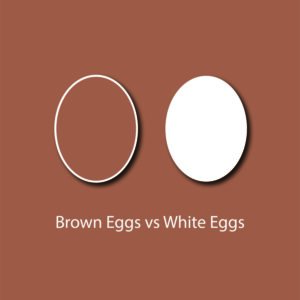
Brown eggs are better, white eggs are better, the debate among which eggs are the best is never ending. When it comes to the color of the eggshell, it all depends on the color of the bird. You’ve heard the old joke that “chocolate milk comes from brown cows,” ha ha, but in this case it’s true! White eggs simply come from birds with white feathers and brown eggs from birds with brown feathers. So which one is nutritionally the ‘best?’ Well, we guess both, because what’s on the inside is exactly the same.
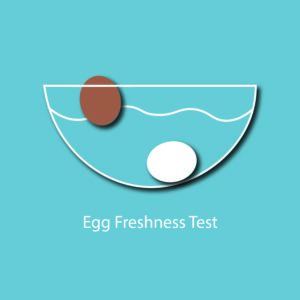 Eggs are only good until the date on the carton.
Eggs are only good until the date on the carton.
The dates printed on the sides of egg cartons are actually only the sell by date. Eggs, if kept properly refrigerated and stored, can keep up to five weeks after that date. One trick that can easily be used to test if your eggs are still good is the sinker test. Place your whole egg, still in the shell, to a glass of water. If it sinks to the bottom, it’s still good, if it floats, time to toss.
Fresh eggs are always better.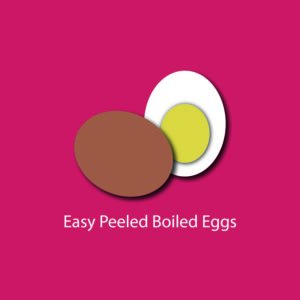
While yes, when it comes to taste and appearance, fresh eggs beat week olds, the tables turn when it comes to hard boiled eggs. If you’ve ever hard-boiled brand-new eggs straight from the store, you may be familiar with the struggle and frustration when it comes time to peel them. The trick, to easy peel hard boiled eggs, is in the age of the eggs themselves. As eggs sit, the membrane starts to separate itself from the shell and this is what allows the shell to easily detach from the cooked egg come peeling.
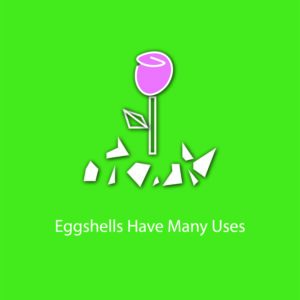 Eggshells are trash.
Eggshells are trash.
Most of us toss our eggshells in the garbage without a second thought, but did you know there are actually many uses and repurposes for eggshells? They can be ground down and used in homemade beauty remedies, fertilizers and more! Here are some ideas that our team tried.
There is no wrong way to crack an egg.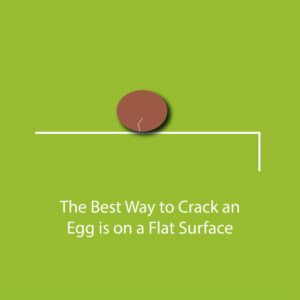
Ok, so its true, there is not an incorrect way to crack an egg, but there is an easier and less messy way. Cracking eggs on a flat surface as opposed to the edge of a bowl can help to preserve that sticky membrane inside the egg and keep more shards out of your bowl or pan by sticking to the membrane instead!
 Use a fork to remove eggshell pieces from a bowl.
Use a fork to remove eggshell pieces from a bowl.
So, you did crack your eggs on the edge of your bowl and now there’s a few shards that fell in. Everyone’s always told you the “trick” to getting them out is by using a fork, right? Wrong. While yes, it does work there is an easier way: using your hands! With clean and dry hands, wet a single finger and insert into the bowl where the shell is, you might notice the shard appear to gravitate to your finger on its own and all of a sudden, no more chasing those shards around the bowl like a game of tag.
You can’t eat eggshells.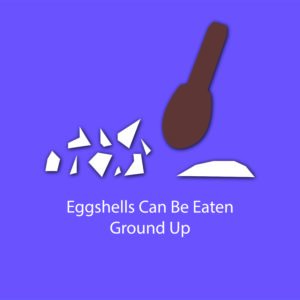
Now don’t go running and eat a bowl full of those jagged, sharp eggshells as is, but eggshells can be ground down and transformed into a calcium supplement if done correctly. Eggshells themselves are extremely high in calcium and contain 27 essential microelements! So in short, you actually should eat eggshells (in moderation that is.)
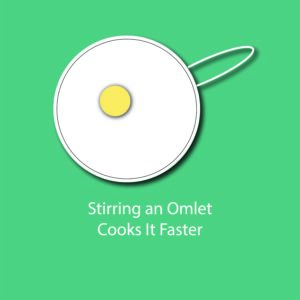 Never stir an omelet.
Never stir an omelet.
While most people claim that stirring an omelet during the cooking process will take away the egg’s fluffiness, there are many different methods to cooking an omelet. Stirring, folding and tilting your omelet during cooking may actually speed up the cooking process and we promise, it tastes just as delicious.
Never season eggs before cooking.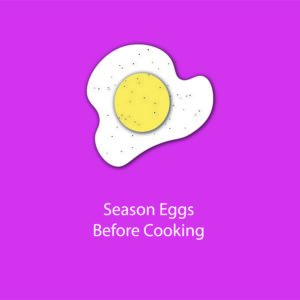
A lot of professional cooks out there claim that eggs shouldn’t be seasoned before cooking, as salt can break down the composition and make your end product runnier. But this myth has officially been busted by repeated test suggesting that salting before cooking can act as a buffer between the proteins resulting in a more tender end product.
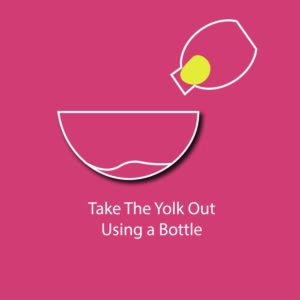 Using the eggshell is the best method to separate eggs.
Using the eggshell is the best method to separate eggs.
We all dread those recipes that call for egg whites or egg yolks individually. It’s messy, frustrating and in the process of passing the yolk from one side of the shell to the other, you always end up with egg shards in your egg whites. Instead, crack your entire egg in a bowl and use a clean and empty water bottle to ‘suck’ out the yolk. Squeeze the bottle and place the opening close to the yolk, as you release, the yolk will pop right in!
Water is better than milk when it comes to scrambled eggs.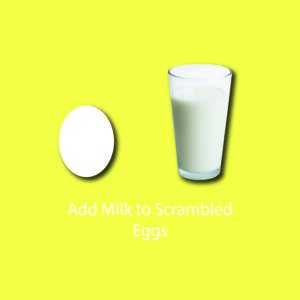
There is always the debate among chefs about whether water or milk should be used in mixing scrambled eggs. Some claim adding milk makes the eggs too wet or causes them to get overcooked in the process of try to rid the extra moisture. However, a splash or two of milk can actually result in softer and smoother scrambles.
 Eggs are bad for your cholesterol.
Eggs are bad for your cholesterol.
Over the years, the conversation regarding cholesterol in eggs has swayed both ways. First, they were good for you, then they were bad, and now it looks like the experts think they’re ok again. Yes, while eating foods high in cholesterol can raise your own body’s cholesterol, it’s the saturated and trans fats that increase the body’s cholesterol-production levels. Luckily, eggs are very low fat, with no trans fat and on average only 1.5g of saturated fat per egg.
Eggs should only be made on the stovetop.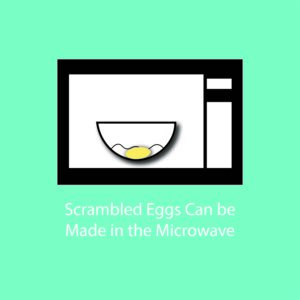
Most of us choose not to eat eggs on a daily basis because the hassle and cleanup afterwards doesn’t quite fit in with out ‘out the door’ morning mentality. What if we told you that you could make an egg in 90-seconds in the microwave. Simply crack your egg in a bowl or coffee mug, add a splash or water or milk and any toppings of your choice and mix all up. Then, microwave on high for about 45 seconds, take out and stir, and microwave for an additional 45 seconds. Quick, easy and if you made it in a mug, you can take it with you on the go!
 All eggs have the potential to hatch into chickens.
All eggs have the potential to hatch into chickens.
All chickens come from eggs, but not all eggs will turn into chickens. Just like in humans, for eggs to contain life, they need to be fertilized, meaning the presence of a rooster. Without fertilization, there is zero chance of eggs developing or hatching into baby chickens.
The chicken came first.
Ok, so this last one may not be 100% busted, but here’s what some think. Obviously, chickens come from eggs, but if the first chicken egg wasn’t from a chicken, where is it from? You may need to use your imagination a bit, but thoughts are that the first chickens came from mutated eggs of another bird, and birds evolved from dinosaurs. So, we guess they’re claiming that chickens came from dinosaurs? Who knows, we’ll leave this last one up to you.


